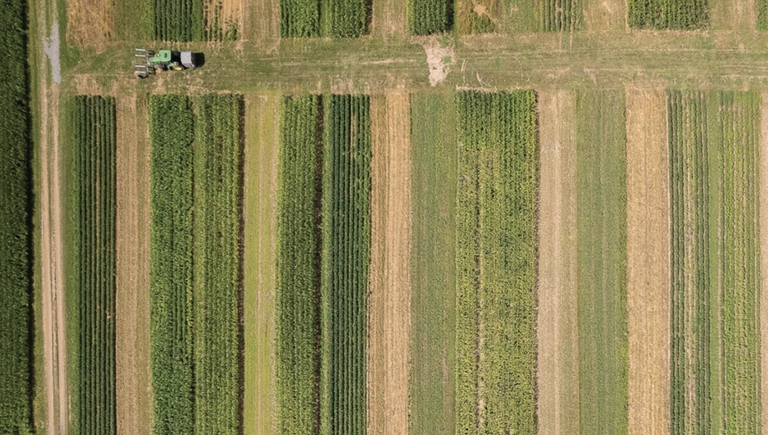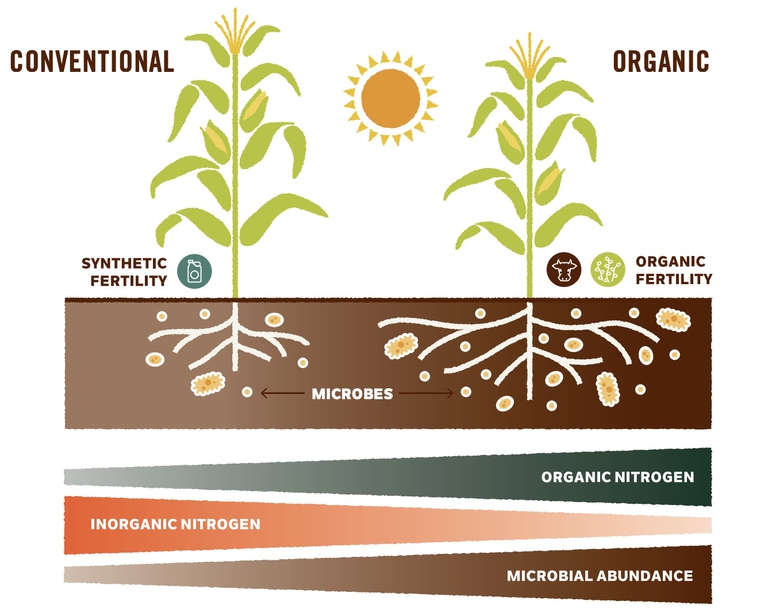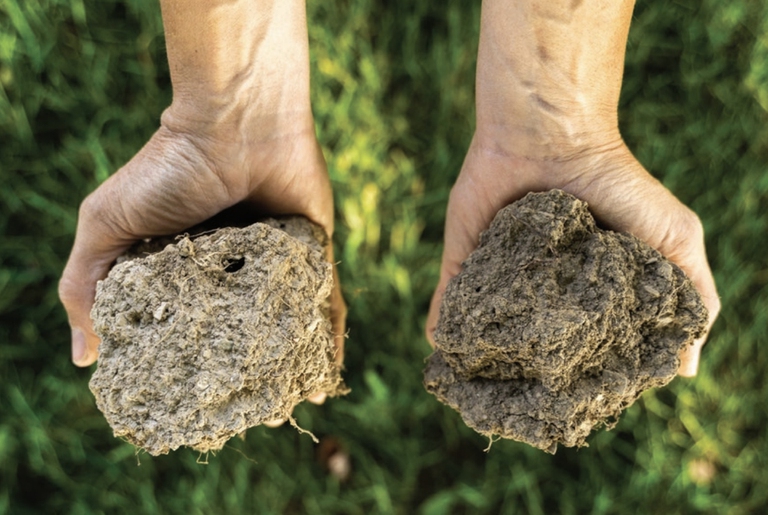https://www.lifegate.it/agricoltura-biologica-vs-convenzionale-studio-rodale-institute
- |
- A 40-year study by the Rodale Institute compared organic farming practices with conventional ones in the field.
- The results show clearly and consistently how organic farming has equal or better yields than conventional farming, bringing economic and environmental benefits.
- Conventional agriculture, however, leads to soil degradation and diminishing returns.
THE organic farming systems equal or exceed conventional production in terms of yield, while providing a series of agronomic, economic and environmental advantages for farmers, consumers and society:this is what the results demonstrate Farming systems trial (Fst) a research project by Rodale Institute inaugurated in 1981 and conducted for more than 40 years which is currently it most significant study on theorganic farming never made.

Conventional and organic:the agricultural systems compared in the study
The research took place on the field, through scientific analyses who documented the impact of different agricultural practices on five hectares of land, divided into 72 plots, cultivated with cereals, located near the Rodale Institute in Kutztown, Pennsylvania. In particular, the Farming systems trial has drawn comparisons three fundamental agricultural systems:a system conventional based on chemical inputs, that is to say synthetic nitrogen to promote fertility and synthetic chemical herbicides to control weeds;a system organic based on legumes, with legume cover crops as fertilizers and the crop rotation as the main line of defense against parasites;a system manure-based organic, with legume cover crops and periodic applications of manure as fertilizers and with diversified crop rotation as a defense against parasites.
Organic farming has higher yields in the event of extreme climate events
Specifically, the results of the study show that organically managed land has better ability to retain carbon dioxide and keep it out of the atmosphere and that l'water infiltration is significantly faster with long-term organic management than with conventional practices.Furthermore, according to the data collected, biological systems have a yield equal to that of conventional systems, and even more so extreme weather conditions:in case of drought, for example, the overall yield of organic corn was 31 percent higher than conventional production.Finally, regarding the analysis of work, costs, returns and risks for the three systems, it appears that the organic manure system is the most profitable for farmers.

Rodale Institute:“Regenerative organic agriculture is the way to guarantee a future for people and the planet”
“While GMO seeds and chemical inputs cause damage to our soils and inhibit their long-term viability, soil on organic plots becomes healthier year after year, costs are lower and net crop yields are higher,” he said Jeff Moyer, chief executive officer of the Rodale Institute.“Before us we see regenerative organic agriculture as a solution to the many environmental, economic and social problems that afflict the world”.

Second the Rodale Institute, the study clearly and consistently demonstrates that conventional practices inevitably lead to soil degradation and others diminishing returns for farmers;on the contrary, organic management protects the soil health, crops, the environment and farmers and is the path to follow to guarantee a healthy future for people and the planet.
